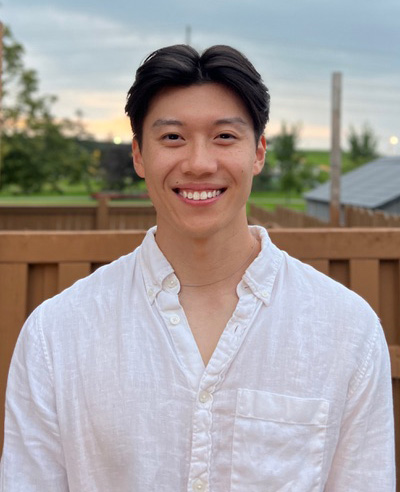1. Who are you? Tell us about yourself.
My name is Nivin Nystrom. I completed my Bachelors of Science in Genetics at Western before joining the Department of Medical Biophysics Ph.D. program at Western, where I am carrying out my breast cancer research under the mentorship of Dr. John Ronald & Dr. Timothy Scholl.
2. Why is the TBCRU Studentship Award important to you?
Receiving the award has had a tremendous impact on the amount of time I can devote to my research. One of the scientists at Robarts often jokes that he had to take summers off during his Ph.D. so that he could work to make money for his tuition and living costs. I am delighted to have support from the Breast Cancer Society of Canada so that I can commit all of my time to research.
3. Tell us about your research. What are you doing and what problems do you hope to solve?
The goal of my research is to develop immunotherapy technology for breast cancer as well as imaging techniques to trial in clinical animals to test how well the immunotherapy works. Most immunotherapy research depends on activating or enhancing existing immune functions, whereas I am focusing on synthetic immune mechanisms such as “cytotoxic genes.” These are genes that are not naturally found in the body, but we implement them in our immune cells to give them new tumour-killing capacities against breast cancer.
4. Why is your research important? How can your research be applied in the real world?
Although immunotherapy marks a significant milestone in cancer treatment, current methods that focus on amplifying the natural immune system may cause adverse reactions in many patients that are difficult to control and have even led to some deaths in clinical trials. By focusing on synthetic immune mechanisms, like introducing a new killing mechanism into an immune cell, we try to avoid activating parts of the immune system that may cause severe reactions in patients. We hope that this treatment will one day become an option for breast cancer patients who may not benefit from, or are at risk with current treatment options.
5. What inspired your research?
I didn’t develop my research topic until about a year into my graduate degree when a significant paper came out that described new synthetic immune mechanisms against cancer. My supervisors and I discussed the paper at length and decided that although it was a challenging project, it was important to try and apply the technology towards breast cancer.
6. Why are you passionate about breast cancer research?
Before I got into my graduate research, I knew I wanted to work in the cancer field, since it has affected so many people around me. I thought it was important to focus on breast cancer because I wanted to understand better what these women would have gone through and wanted to play a part in helping improve the standard of care, however small it may be.
7. Why do you think breast cancer research matters?
Breast cancer research is important because it is the only component of the cancer research field that focuses entirely on women. Women are often underrepresented in clinical trials for other types of cancers, a bias caused by exclusion criteria integrated with these studies, and as a result, new cancer treatments coming out either have lower effectiveness or greater adverse effects simply because they have been mostly tested on male cancer patients. Breast cancer is the second leading cause of cancer death in Canada, and I am happy that organizations like the Breast Cancer Society of Canada have helped make it a major focus of research.
8. What excites you about your work?
I’m excited to work as part of a larger collaborative effort against breast cancer. The enthusiasm for the work we do is contagious, and it’s the main reason I love working on my research.
9. What do you see yourself doing in the future?
I hope to pursue medical school after I finish my Ph.D. next year.
10. What do you like to do when you aren’t working on research?
I practice Brazilian jiu-jitsu at least three times a week. It helps keep me grounded and focused.
Support researchers like Nivin Nystrom by considering a donation to the Breast Cancer Society of Canada. Find out how you can help fund life-saving research, visit bcsc.ca/donate




